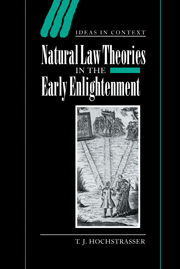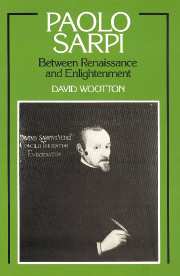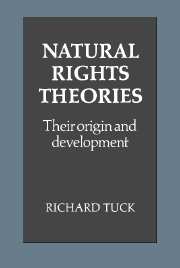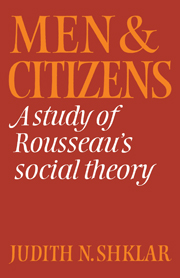Natural Law Theories in the Early Enlightenment
This study examines the development of natural law theories in the early stages of the Enlightenment in Germany and France. T. J. Hochstrasser investigates the influence of theories of natural law from Grotius to Kant, with a comparative analysis of important intellectual innovations in ethics and political philosophy. This book assesses the first histories of political thought, giving insights into eighteenth-century natural jurisprudence. Ambitious in range and conceptually sophisticated, it will be of great interest to scholars in history, political thought, law and philosophy.
- Study of natural law theories in Germany and France in the early Enlightenment from Grotius to Kant
- Includes Pufendorf's theory of Eclecticism, a major force in intellectual life until the emergence of Kantian Idealism
- Comprehensively draws together the first histories of political thought since ancient times
Reviews & endorsements
"...the broad cultural and institutional context in which Hochstrasser places the major and minor intellectual figures brings a welcome sense of realism and sociopolitical engagement to ideas and texts that are all too frequently interpreted wholly out of context." Journal of Modern History
"The sheer range of this book and its ability to fold such a variety of intellectual developments into a coherent account are its chief recommendations... It is well written and carefully produced, and it will become an important toll in the field." Michael J. Seidler, American Political Science Review
Product details
November 2006Paperback
9780521027878
268 pages
228 × 152 × 18 mm
0.405kg
Available
Table of Contents
- Preface
- 1. Introduction: natural law and its history in the early Enlightenment
- 2. Socialitas and the history of natural law: Pufendorf's defence of De Jure Naturae et Gentium
- 3. Voluntarism and moral epistemology: a comparison of Leibniz and Pufendorf
- 4. Christian Thomasius and the development of Pufendorf's natural jurisprudence
- 5. Natural law theory and its historiography in the era of Christian Wolff
- 6. Conclusion: the end of the 'history of morality' in Germany
- Bibliography
- Index.






